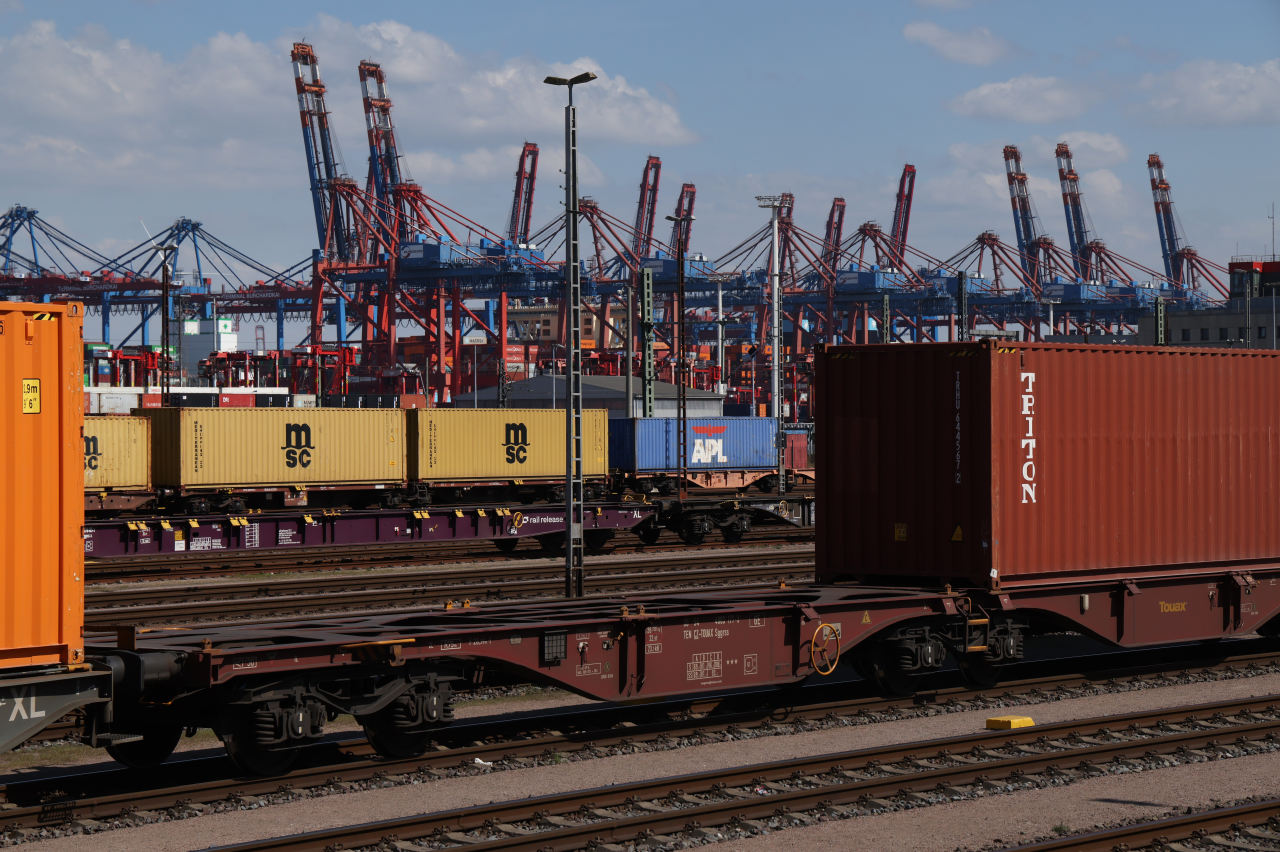Europe Plans Retaliatory Tariffs on U.S. Goods if No Deal Is Reached

EU Preparing Retaliatory Tariffs on U.S. Goods Amid Trade Tensions
The European Union is preparing a new list of American products that could face retaliatory tariffs if a trade deal isn't reached by August 1, according to recent developments. The list includes a wide range of goods such as aircraft, alcoholic beverages, coffee, and medical devices. This move comes after President Trump’s latest tariff threats reignited discussions within the EU about how aggressively it should respond if no agreement is reached.
EU officials unveiled the list following Trump's recent warnings, which have sparked renewed debate over the bloc's approach to trade disputes with the United States. In April, the EU had frozen an initial package of retaliatory tariffs against the U.S. after Trump announced plans to limit blanket tariffs on most countries to 10% for 90 days. The new EU list, shared with the bloc’s 27 member states, targets American imports valued at approximately $84 billion in the previous year.
The list covers about $77 billion worth of industrial imports, including aircraft, machinery, automotive products, chemicals, plastics, and medical devices. It also includes around $7 billion in agricultural and food products, such as fruits, vegetables, wine, beer, and spirits. European officials are currently discussing what would trigger these tariffs and whether to expand measures to include restrictions on American services, not just physical goods.
The EU’s strategy regarding U.S. tariffs has gained renewed attention this week after Trump sent a letter to the bloc threatening to impose 30% blanket tariffs on European imports starting August 1. This move caught many EU officials off guard, as they believed a preliminary agreement was close to being finalized.
In response, Trump stated on Monday that “the deals are already made. The letters are the deals…There are no deals to make.” He added that those who receive his letters might want to negotiate differently, but the U.S. remains open to talks, including with Europe.
EU trade chief Maros Sefcovic emphasized that a 30% tariff would be “effectively prohibitive” for trade between the two economies. He expressed a commitment to continuing negotiations with U.S. officials, stating, “I cannot imagine walking away without genuine effort.”
However, Sefcovic noted that ministers from the EU’s 27 member states were clear that if no deal is reached, the bloc must take steps to protect its economy through what he called rebalancing measures against the U.S. During a meeting in Brussels, shortly before Trump’s comments at the White House, Sefcovic observed that the sentiment for a response was stronger than ever.
One potential tool available to the EU is the anticoercion instrument, an untested legal mechanism that could allow for levies on American services. U.S. services exports to the EU include financial services and digital products like online advertising. The exact use of this instrument in a trade dispute with the U.S. remains unclear.
Other options under the anticoercion instrument include restricting American companies' intellectual property rights in Europe or making it harder for them to participate in public tenders. European Commission President Ursula von der Leyen mentioned in April that the EU could consider a levy on American tech companies’ digital advertising revenue. She reiterated on Sunday that the EU would continue negotiations until August 1, noting that the anticoercion instrument is reserved for extraordinary situations.
A challenge for the EU is that Trump has linked tariffs to policies unrelated to trade. The bloc continues to rely on the U.S. for security in Europe, and officials are concerned that Trump might again reduce support for Ukraine, as he announced on Monday that the U.S. would sell weapons to arm Kyiv’s forces.
The EU had previously been close to a deal that would require it to accept blanket U.S. tariffs of 10% on most goods. Some EU countries view this as a significant concession. Officials hope such an agreement could provide protection from further tariff increases.
Discussions on retaliation were paused recently as officials focused on securing a deal with the U.S. An initial package of tariffs targeting more than $24 billion in American imports, including items like chewing gum, motorcycles, and peanut butter, was approved in April in response to U.S. metals tariffs. However, this package was quickly put on hold after Trump paused some of his tariffs to facilitate negotiations.
The second proposed package of retaliatory tariffs, presented to member states on Monday, was reduced to cover U.S. imports valued at roughly $84 billion, down from an earlier level of about $111 billion, following consultations with industry and member states. The new package still requires formal approval from member states.
Danish Foreign Minister Lars Lokke Rasmussen highlighted the importance of preparation, stating, “If you want peace, you have to prepare for war.” He suggested that the EU is in a similar position regarding trade preparations.
Post a Comment for "Europe Plans Retaliatory Tariffs on U.S. Goods if No Deal Is Reached"
Post a Comment